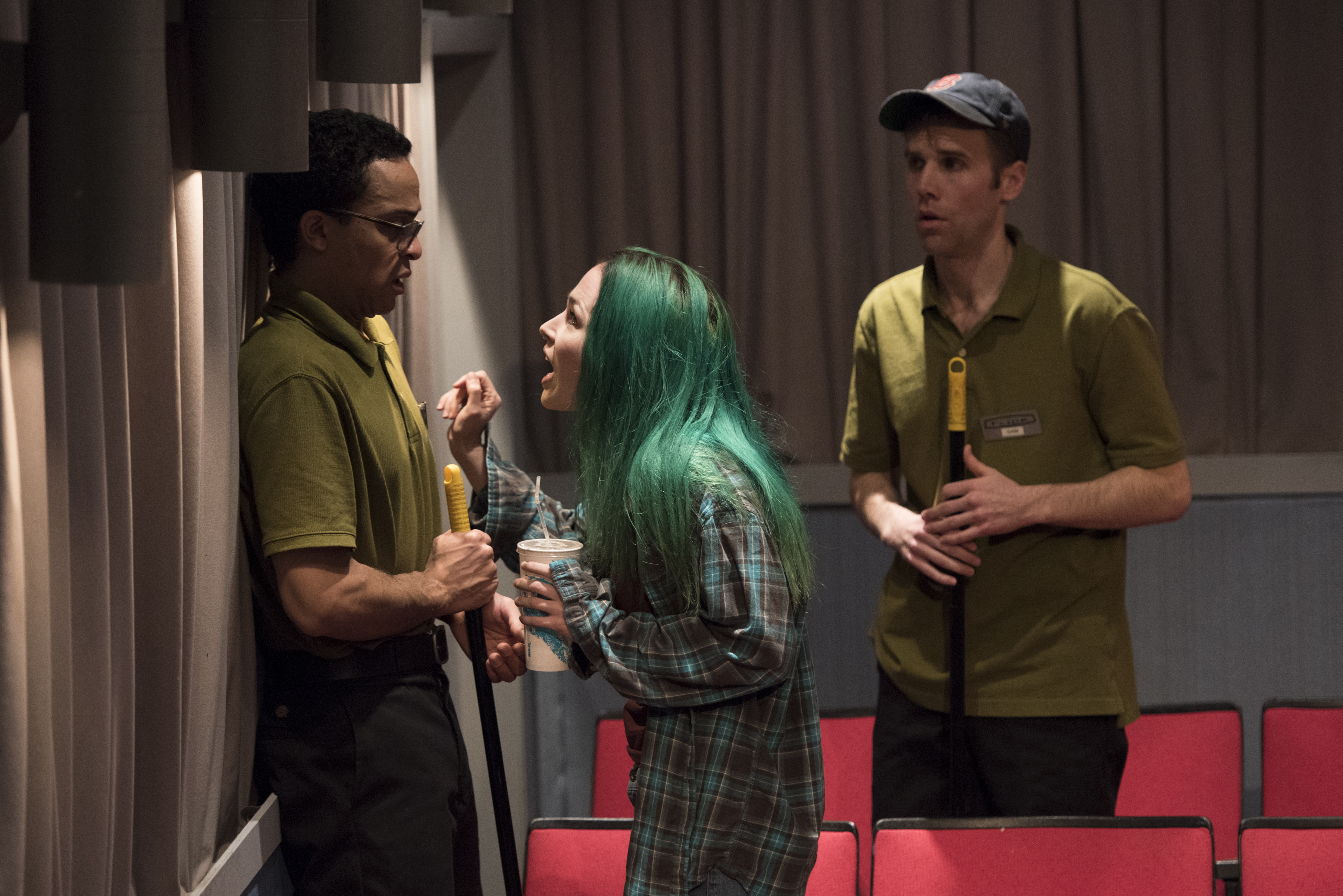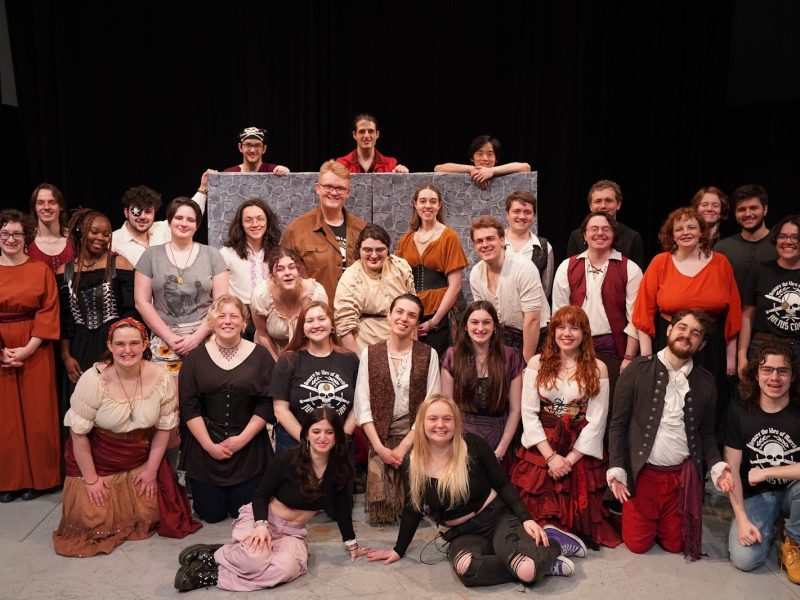When it comes to a theater script, I usually enjoy one of two things: realism or grandeur. My hope often is that the lines are imperfect, choppy, mumbled and so recognizably human that they take power in that humanity or that they are written with enough craft and delivered with enough power to convince me that an actor just said something I could only ever dream of saying and in a way that’s not accessible to people like me.
Often, it’s contemporary plays that go with the former option and classic works that are built on the latter. But what if a play could find the perfect balance between the two? What if it was written with enough skill and the characters were developed with enough complexity that a sentence as simple and as common as “I’m free on Friday” could strike you as an audience member with the same force as “Et tu, Brute?”
That balance, that seemingly impossible feat, is on display for roughly three hours in Annie Baker’s The Flick, currently showing at Arlington’s Signature Theatre, and it’s that characteristic that makes the play a work of subtle brilliance and undeniable beauty.
The Flick, which won the 2014 Pulitzer Prize for drama with an off-Broadway run that proved a critical coup, is a story about a movie theater. The characters never leave the theater nor talk much about the world beyond it. Sam (Evan Casey) is a 30-something Red Sox fan who has worked at the Massachusetts theater for years. We meet him on the day he’s set to train Avery (Thaddeus McCants), a nervous college student with a love of film strong enough to compel him to sweep aisles during his semester off.
Each scene begins with the two men entering the theater after a movie has ended, ready to clean up after strangers. As they sweep, they discuss everything from Avery’s snobbish taste in film to Sam’s workplace crush on Rose, the theater’s projectionist (Laura C. Harris). The two men don’t have much in common, but neither do most co-workers. In this way, The Flick is like a family drama, except it’s about a work family. It’s about three people who have arrived in this situation from different places and for different reasons, and who are there to make money and survive, not get to know someone. But it’s hard to avoid doing that in the countless hours spent doing mindless tasks. The question is, just how much do you get to know them?
The realization that this is going to be a unique experience comes very early in the evening at Signature. The play is held in its Ark theater, a black box-type setup that features just more than 100 seats. For The Flick, those seats sit face-to-face with with rows of movie theater chairs on the stage. High on the back wall was a single window where the projector sat. Essentially, the audience is the movie screen, and in between scenes, the stage goes dark and short clips are projected on the crowd. The effect of all this is an ever-present feeling of watching or being watched with a small barrier in front of you, enough that you can get so very close to the subject of your gaze but can’t touch it. What’s that sensation reminiscent of if not a movie?
With the actors so close, it’s easy to really inspect their acting. Each mannerism, each line and especially each burst of emotion (although they tend to be more subtle explosions here) are subject to close reading by each and every audience member. Having said that, Casey, McCants and Harris are all exceptional here. As Sam, Casey creates layer upon layer underneath an average Joe facade and lets them peek out at exactly the right moments. Harris turns Rose into someone so flawed but lamentable that an act as simple as putting her hand to the glass of the projection room window speaks volumes about who this character is and what her hopes are.
While the other two are standouts, McCants is a star. His performance as Avery at first seems like an over-the-top portrayal of a nerdy cinephile, but with time, it slowly morphs into something gargantuan. A scene that involves only Avery and a cellphone halfway through the first act has some of the play’s very best moments because of the quirks, emotion and subtlety McCants brings to the table. Also, a late conversation in which the film lover decides to recite a monologue from one of his favorite movies is something to behold.
Part of what makes those two scenes great is the silences. In the cellphone conversation, the silences are understandable, even predictable. He talks and then he listens. But the monologue recitation is more indicative of Baker’s strengths. After Avery finishes, Rose and Sam sit silently. And then they continue to do so. Time passes and not a word is said. Baker peppers the script with moments like these, silences that the characters bathe the audience in. They come at natural points in the dialogue — tens of seconds or even whole minutes of nothing. Instead of the verbal athletics that many famous plays boast, The Flick is perfectly fine with just being real about how people speak to each other.
The Flick is very much about the questions we have to ask ourselves in order to determine what is real and what is not. Is this friendship real, or do we just work together? Are these feelings real, or do I just like the idea of it all? Is my connection to this art real, or am I using it as a placeholder for something else? Is this art at all? They’re questions we all present ourselves over time, and it often hurts to answer them — if we can even give them an answer at all.
These aren’t the only questions the play asks. In one scene, there is some time spent discussing what makes a great movie. It’s an age-old question without one true answer, but an argument could be made that a great movie shows you something you’ve never seen before. So, in that sense, The Flick is like a great movie — it defies a traditional genre and presents something wonderful in a new and exciting way. Except this isn’t a movie; it’s live theater. Everything is right there in front of you, and that’s what really makes it a special experience. It gets so close that you could almost reach out and touch it.



